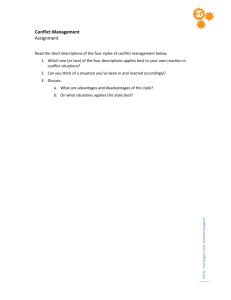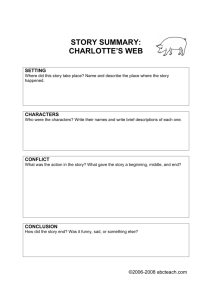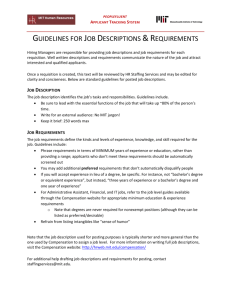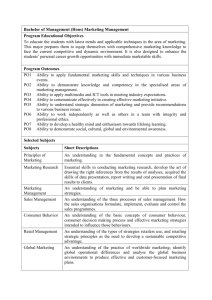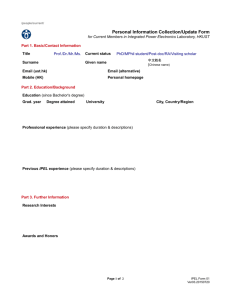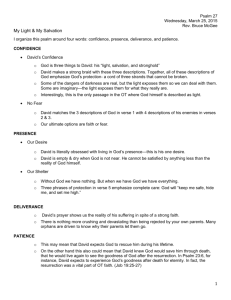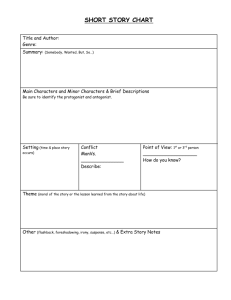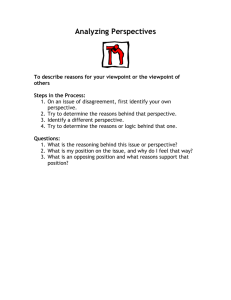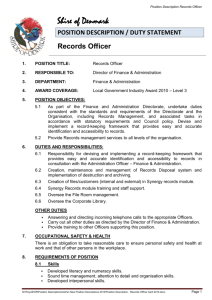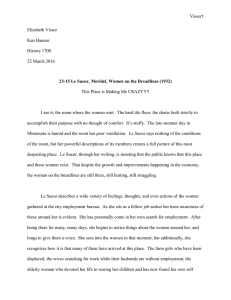First Reactions to “Women on the Breadlines”
advertisement
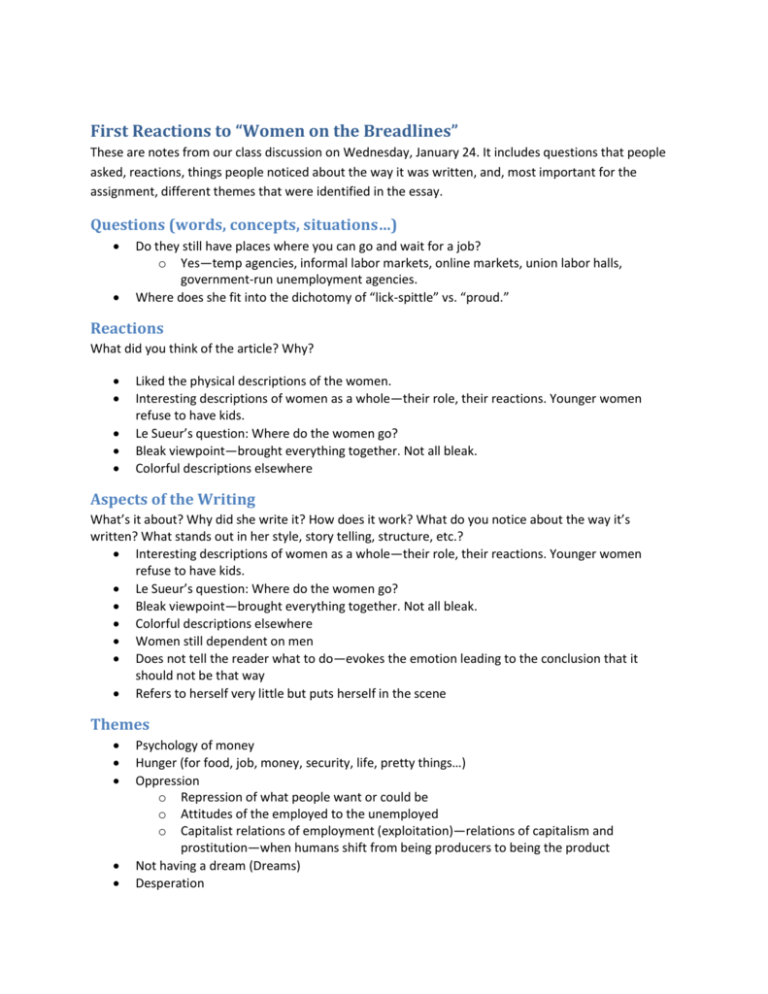
First Reactions to “Women on the Breadlines” These are notes from our class discussion on Wednesday, January 24. It includes questions that people asked, reactions, things people noticed about the way it was written, and, most important for the assignment, different themes that were identified in the essay. Questions (words, concepts, situations…) Do they still have places where you can go and wait for a job? o Yes—temp agencies, informal labor markets, online markets, union labor halls, government-run unemployment agencies. Where does she fit into the dichotomy of “lick-spittle” vs. “proud.” Reactions What did you think of the article? Why? Liked the physical descriptions of the women. Interesting descriptions of women as a whole—their role, their reactions. Younger women refuse to have kids. Le Sueur’s question: Where do the women go? Bleak viewpoint—brought everything together. Not all bleak. Colorful descriptions elsewhere Aspects of the Writing What’s it about? Why did she write it? How does it work? What do you notice about the way it’s written? What stands out in her style, story telling, structure, etc.? Interesting descriptions of women as a whole—their role, their reactions. Younger women refuse to have kids. Le Sueur’s question: Where do the women go? Bleak viewpoint—brought everything together. Not all bleak. Colorful descriptions elsewhere Women still dependent on men Does not tell the reader what to do—evokes the emotion leading to the conclusion that it should not be that way Refers to herself very little but puts herself in the scene Themes Psychology of money Hunger (for food, job, money, security, life, pretty things…) Oppression o Repression of what people want or could be o Attitudes of the employed to the unemployed o Capitalist relations of employment (exploitation)—relations of capitalism and prostitution—when humans shift from being producers to being the product Not having a dream (Dreams) Desperation Dependency on others (men, charity, etc.) Gender o What women are capable of Shame/Humiliation/Pride Attitudes of the employed toward the unemployed Depression Age Dehumanization (what does it mean to be human?) Futility/meaning, purpose, empowerment Adaptability
